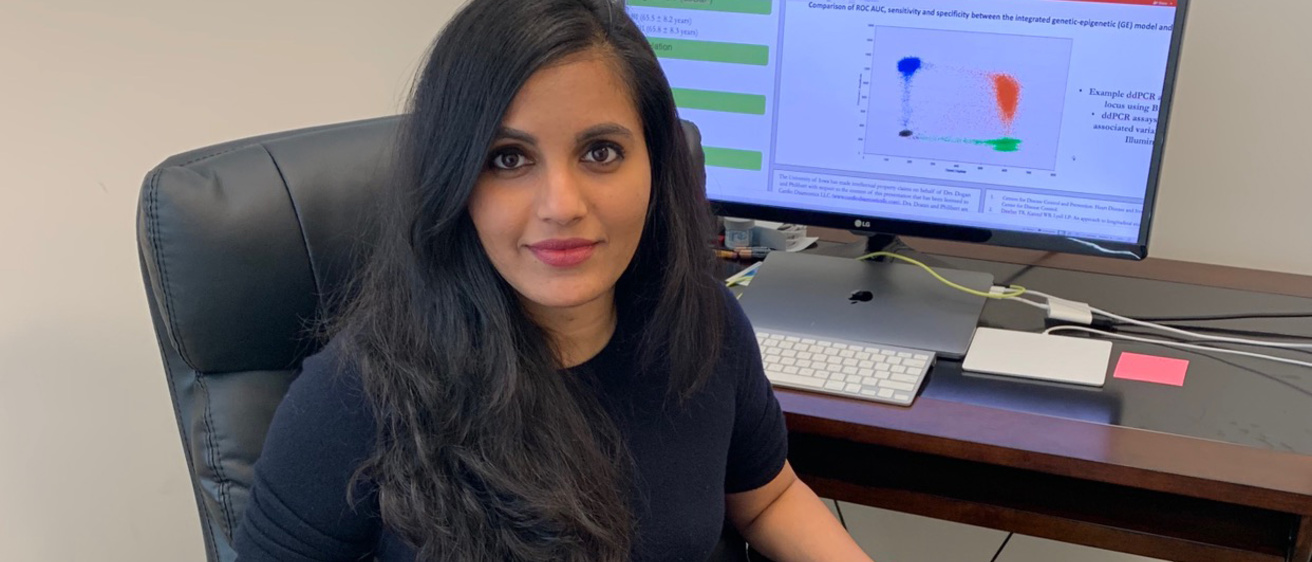Doctors have been outlining the risks of heart disease for decades: family histories, unhealthy diets, smoking, and inadequate exercise. In many ways, these factors have helped patients understand that both their genetic traits and their behaviors can contribute to maladies such as heart disease and stroke. With increasing breakthroughs and advances in machine learning and artificial intelligence, a new approach is being pioneered by Meesha Dogan, a University of Iowa alumna who sees a future that combines big data in the form of molecular information with the predictive powers of artificial intelligence, all in an effort to identify those at risk for heart disease.
“The current approach to assess risk for heart disease combines measured traditional risk factors such as cholesterol and diabetes, with self-reported activities such as smoking,” said Dogan. “But multiple tests are required to ascertain these measures and sometimes, self-reported information can be subjective. What if there were a single, more precise and objective way to measure risk?”
Dogan, who graduated from the University of Iowa with a PhD in biomedical engineering in 2017, is CEO of Cardio Diagnostics, a biotech company based in Coralville, Iowa. Cardio Diagnostics gathers genetic and epigenetic information from a simple DNA test and then uses machine learning to assess whether those biomarkers contribute to the risk of heart disease and stroke in an individual. By relying on DNA, and not self-reports, extensive medical data, or multiple blood draws, the data gathered can help identify what part of a person’s biology is driving their risk for these diseases.
The promise of this new technology is that it can simplify risk screening and deliver results that are more sensitive than the current approach. The first test is geared towards the most common type of heart disease, coronary heart disease. The results of this test are intended to predict risk for up to three years in the future and provide insights into a person’s unique biology that could be used to tailor interventions. But the innovation in using DNA-based biomarkers to predict risk is about more than efficiency – significant gender gaps exist in the current way we test for these diseases.
“We show that the current approach can correctly identify approximately six out of ten men who are at risk for coronary heart disease but can only correctly identify approximately four out of ten women who are at risk” said Dogan. “We want to close that gap. Our test can correctly identify approximately seven out of ten at risk for both men and women.”
Cardio Diagnostics has validated this technology in partnership with Intermountain Healthcare and is continuing to perform additional validity tests with a goal to launch in April 2020. In addition to the gender gaps that the technology hopes to overcome, Cardio Diagnostics has received support from the National Institutes of Health to help overcome racial and ethics gaps in risk assessment.
“Engineers at the University of Iowa have the opportunity to collaborate with researchers and physicians at a world-class teaching hospital,” said Dogan. “Those collaborations not only propelled me in my academic career, but they also showed me how biomedical engineering can improve quality of life through innovation, something we are trying to do at Cardio Diagnostics every day.”
